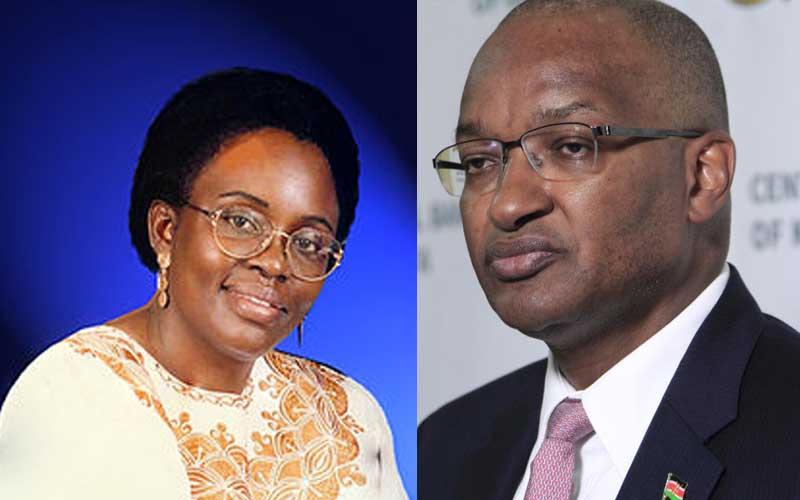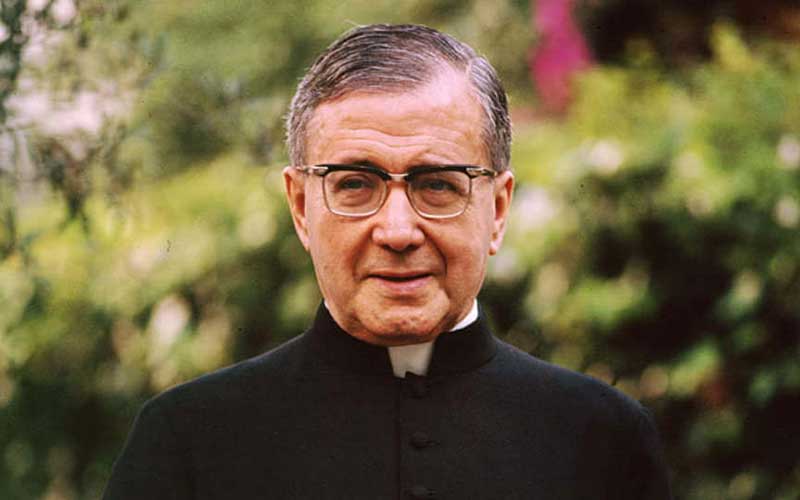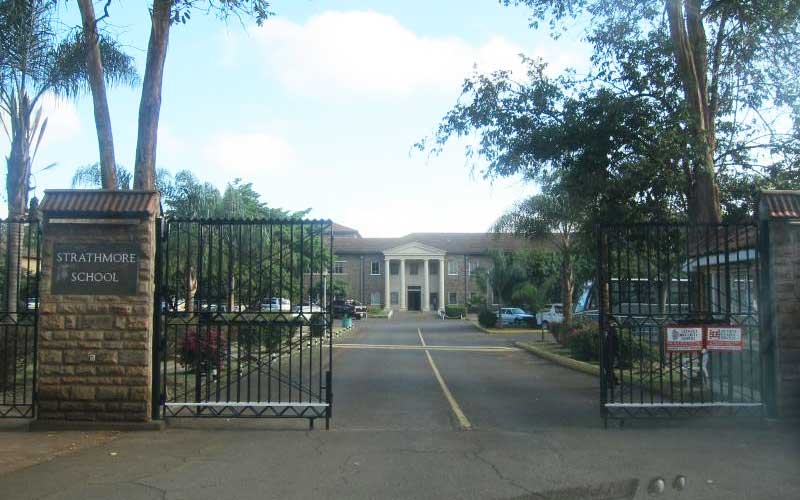
The parents of Sophie Naliaka Kibanani went to court, accusing the Opus Dei, a Roman Catholic order, of indoctrinating their daughter into a life of celibacy in 2011.
Naliaka, then 25, was a student at Strathmore University, a corporate apostolic undertaking of the Opus Dei.
The case lodged by her father, Dr Charles Kibanani and mother, Hellen Kibanani, who charged that their first born of two children was suffering from a mental disorder “largely occasioned by her involvement in Opus Dei lifestyle and activities”.
An A-student, Naliaka was admitted to the University of Nairobi Medical School, before she transferred to study computer science at Jomo Kenyatta University of Technology (JKUAT) and finally settled on a Bachelor of Commerce at Strathmore University. She graduated in absentia among the top of her class on June 24, 2011 three years after she decided to join the Prelature of Opus Dei as a numerary member at 22.
The parents argued that Opus Dei had resisted any attempts to “cure her of the indoctrination” besides “clandestinely and aggressively” recruiting her as a numerary.
There were differing psychiatrist reports tabled in court on Naliaka. One from Mathari Psychiatric Referral Hospital stated that Naliaka had a “history of running away from home, talking to herself and over religiosity” and that “she was put on treatment for a delusional disorder and took neuroleptic medication daily until she ran away to allegedly rejoin this religious sect.”
Another from a consultant psychiatrist was to the effect that she was mentally fit.
The High Court in Nairobi dismissed the case.
It was not the first time Kenyans were hearing of Opus Dei whose activities seeks to spread the message that work, study, family life, and other ordinary activities are occasions for spiritual union with Jesus Christ.
Assumed to be secretive, the Opus Dei is small, yet powerful, prestigious and rich order, whose members are some of the brightest adherents of the Roman Catholic Church. Opus Dei members are in many professions, including prominent lawyers, doctors, lecturers, economists, judges, media managers, engineers, architects, stockbrokers, bankers, company directors, auditors, educational administrators and successful business people.
Other members are prominent authors like the late Margaret Ogolla, a paediatrician, medical director and author of the famous The River and the Source, which was a secondary school set book in Kenya. Then there is Dr George Njenga, founder of the Strathmore Business School where he’s the dean and lecturer in ethics and leadership.

But of the over 1,000 members in Kenya, perhaps the most prominent in recent times is Central Bank of Kenya Governor Dr Patrick Njoroge. When the Yale-trained economist was appointed CBK governor in June 2015, Kenyans learnt that he was a numerary member of the Opus Dei.
A numerary is a celibate member who usually lives in a special centre run by Opus Dei. Governor Njoroge opted to live in a communal centre in Loresho instead of the official governor’s residence in Muthaiga, Nairobi.
Members of the Opus Dei eschew wealth and other worldly possessions.
During his vetting for the position by MPs, Dr Njoroge said he does not own any property in Kenya. Most members give all their earnings and only get a stipend for basic survival from Opus Dei.
Indeed, when asked about his philosophy of life in an interview with the Business Daily in April 2018, Dr George Njenga said: “It’s a very simple philosophy; I work for God and for the service of the common good. I’ve since convinced myself that I shouldn’t be bothering too much about money. Before I reached 22, I loved money.”
He added: “As an ordinary man, the only pain I have is to see myself going without any child of my own blood. I wish I had a wife and many children, but I made up my mind to serve God and others. When you choose something, then you have to be committed to it.”
On what attracted him to the Opus Dei, Dr Njenga explained that “I looked at the idea; a man transforming the society in a Christian way and most of all, reaching out to the less fortunate. And doing it without financial rewards. If I was to make money, I would have been a very wealthy man, but in Opus Dei we work only for our upkeep. I give all my salary.”
The money members give to Opus Dei goes towards the service of the Church, including running retreat centres, educational institutions like the Strathmore School and Strathmore University, Kianda School, Kibondeni College and technical schools like Kimlea Girls Technical Training Centre and Eastlands College of Technology — which are all known for their academic excellence.
Dr Paul Kioko is a medical doctor who was ordained a deacon in November 2018 and argued that “I realised that just as God had given me a vocation of service to the sick as a doctor, He was now giving me a vocation of service to the whole church as a priest. In a way, being a doctor prepared the path for the priesthood.”
Dr Kioko joined Opus Dei during his final year at The Lenana School, Nairobi.
Opus Dei (Latin for ‘Work of God’) was established in Spain in 1928 by Fr Josemaria Escriva, now a saint. It is currently present in 66 countries, including Kenya where members dispense with creature comforts for a life of relative frugality. The mission of Opus Dei “is to spread the message that all Christians are called by God to make Jesus Christ known and to seek holiness in and through their daily work, family and social relations.”
Unlike other religious orders within the Catholic Church, Opus Dei has a mix of married and non-married members.
Agnes Wahome, a married member, says Opus Dei is a calling for anyone in any honest occupation and who seeks to serve to the highest virtue.
“It is a calling; you do not just wake up one and decide you are a member of Opus Dei” she says of the mission which has been in Kenya for 60 years where its members try to edify their daily work by following Christ’s hidden life of work.
Roy Were, the director of strategy and quality assurance at the Strathmore University Business School explains that the work a person does is actually a continuation of creation.
Were, a non-married member of the Opus Dei, says, “people need to get away from the perception that work is a curse from God and look at it as a God-given opportunity to take part in creation.”
Were however, clarified that some of the educational institutions are not owned by Opus Dei but simply entrust the formation of their students to the prelature.
Most members told The Nairobian that Opus Dei is a calling and not everyone has a calling.
“God calls you but it is up to you to decide whether you want to go for the calling or not,” explains Were. To join the Opus Dei, Wahome elaborates that “spiritual guidance is carried out by a priest and mass is the centre of interior life of a Catholic faithful.”
Weekly classes are held on doctrine and virtues with the riding message that love must be the fulcrum of whatever one does.
Were offers that “a person must be willing to be helped to walk the journey because spiritual assistance helps you get better and able to overcome daily challenges which are ever new.”
Hopeful members can have more than one mentor besides different coaches – spiritual, emotional and economic.
Were points out that a member can leave if the calling becomes too much to bear as life is not a Sunday only that comes with its own challenge.
In a nutshell, Opus Dei espouses the value of seeking holiness in ordinary everyday life since as Were puts it “all human beings have to work and all human beings need to work; try and get an idle person and see how destructive that person can be.”
Were says one of the misconceptions about Opus Dei is that it’s an elitist club yet, “each person has a spirit of work according to their circumstances and it is not that members go announcing they are members and there are members in different occupations and fields.”
Wahome states that in whatever one does, they only need seek sanctification through it.
Sally Githinji, another non-married member of the Opus Dei says that while there are about 100,000 members globally, it is difficult to pinpoint as the calling urges a person to show themselves through their work.
“Just like Christianity, Opus Dei is a call to serve to the highest level with a lot of love and let the work you do speak for itself,” says Githinji adding that you could meet a member of the mission without even realizing unless they choose to tell you.
But this has led to conflicts with other orders within the Catholic Church. In its early formative years, Opus Dei faced a barrage of attacks mainly from the Jesuits – religious congregation within the Catholic Church-which termed Opus Dei as “dangerous for having secretive character and tendencies towards Freemasonry.”

 The Standard Group Plc is a multi-media organization with investments in media
platforms spanning newspaper print
operations, television, radio broadcasting, digital and online services. The
Standard Group is recognized as a
leading multi-media house in Kenya with a key influence in matters of national and
international interest.
The Standard Group Plc is a multi-media organization with investments in media
platforms spanning newspaper print
operations, television, radio broadcasting, digital and online services. The
Standard Group is recognized as a
leading multi-media house in Kenya with a key influence in matters of national and
international interest.
